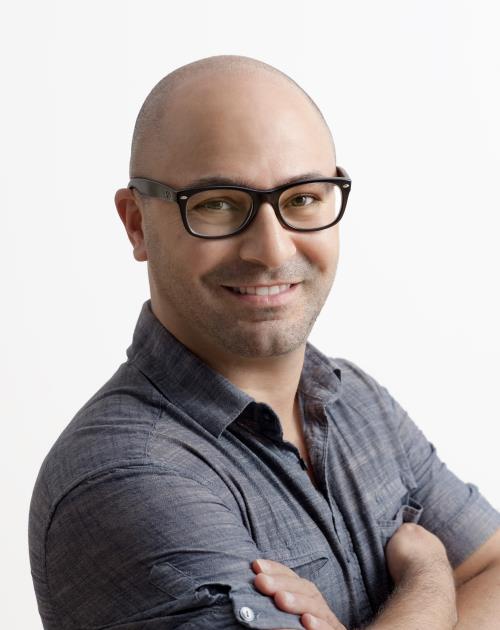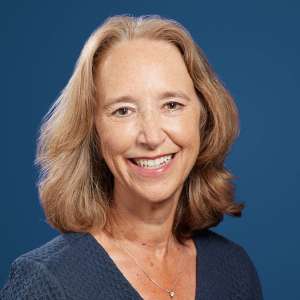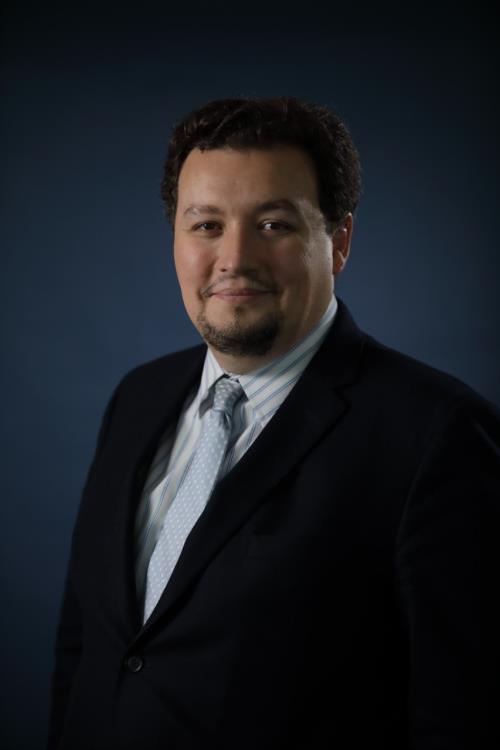The Next Frontier: Let's talk Digital Resilience - Cyber and Space
International Telecommunication Union (ITU)
Session 306
WSIS Action Line ALFM C2: Infrastructure and WSIS Action Line C5: Cybersecurity
Digital technologies play a key role in promoting equality and social inclusion, providing new opportunities for economic growth, and helping achieve the UN Sustainable Development Goals.
To unleash the potential of these technologies for humanity, our cyber networks and physical infrastructure - including satellites, subsea cables, and others - need to be robust, dynamic, and safeguarded to keep up with the demands of a rapidly changing global digital ecosystem. Today, policymakers, regulators and digital infrastructure providers work around the clock to ensure that their communication services always work. In other words, digital resilience underpins a universally available, open, secure and trustworthy digital sphere.
This session will bring together key stakeholders to discuss the different facets of resilience, with an emphasis on space communications that is playing an increasingly important role due to the provision of critical services such as broadband, GPS, satellite imagery and several others. Areas of discussion will include frameworks, mechanisms, and modes of engagement to enhance collaboration, work effectively to safeguard the world's digital infrastructure and ensure that disruptions to communication services are mitigated to the extent possible.

Cosmas Zavazava took office as Director of the Telecommunication Development Bureau (BDT) at the International Telecommunication Union (ITU) on 1 January 2023.
With more than 30 years in telecommunications, including over 20 years in ITU's Development Sector, Dr Zavazava has promoted and implemented impactful information and communication technology projects around the world.
Prior to his election as BDT Director, he served as ITU's Chief of Partnerships for Digital Development, overseeing development-related projects, strategic partnerships, and resource mobilization between 2019 and 2022, while launching new initiatives that have boosted the engagement of industry, private-sector, and academia members in ITU's work.
Earlier, Dr Zavazava headed the Republic of Zimbabwe's Government Telecommunications Agency and served as a senior diplomat. He also taught MBA classes at the UK's Nottingham Trent University.
Dr Zavazava holds a PhD in Multilateral Trade from Business School Lausanne (Switzerland), and a Master of Laws degree in Telecommunications and Information Technology from the University of Strathclyde (UK), as well as a Master's in International Relations from Webster University (US), and an MBA from the University of Zimbabwe. He also holds a Bachelor's in Business Administration and diplomas in Telecommunications and Systems Engineering.

Nur Sulyna Abdullah is currently the Special Advisor to the Secretary General of the International Telecommunication Union (ITU). She is also the Interim Executive Director of the Broadband Commission for Sustainable Development. Sulyna joined the ITU in April 2019 as the Chief of the Digital Knowledge Hub Department in the Telecommunication Development Bureau (BDT).
Previously, she was at the Malaysian Communications and Multimedia Commission for two decades during which she was Chief Officer of Corporate Strategy and Chief Transformation Officer. She then served as the Director of Public Policy for Southeast Asia at Netflix, before joining ITU. Sulyna is an Advocate and Solicitor of the Malaysian Bar.

Dr. Walid Mathlouthi received a PhD in Optics, Photonics and Lasers. He spent his early career at Optical Research Laboratories in France, Italy, Canada and the US with Intel Corp where he worked, among other things, on the first Raman silicon laser. In 2010, he joined AT&T Labs in California as a Senior Member of Technical Staff. He worked mainly on data mining for complex Analysis/problem solving, Laboratory and field experimentation, 3G, 4G and LTE service quality and optimization, RF optimizations, Self-organizing Networks, Large scale UE data collection and analysis for actionable analytics and IP migrations such as VOLTE services.
In 2015, Dr. Walid joined Google Headquarters in Mountain View as an Optical Network Architect. He worked on building high quality networks to provide broadband connectivity in emergent markets and connect the under-connected. Walid spent the last couple of years of his tenure at Google focusing on Google Global Data Center design to support cloud services deployments (compute, storage, ML Pods etc...). He recently joined in 2022 the International Telecommunication Union (ITU) as head of Future Networks and Spectrum Management leading an international division responsible for infrastructure design and implementation in Developing countries to help connect the unconnected.

Audrey L. Allison is a senior project leader in the Center for Space Policy and Strategy in the Defense Systems Group at The Aerospace Corporation. In this role, she provides policy and strategy support related to government space missions and commercial space activities, including analysis of radiofrequency spectrum allocations and related regulatory issues. With more than 35 years of professional experience in the spectrum regulatory sphere, Allison’s career has included a broad range of experience in both government and commercial spectrum management, policy engagement, international negotiations, and publications.
Prior to joining Aerospace, Allison was vice president of Global Spectrum Management at The Boeing Company, where she was responsible for U.S. and international spectrum licensing, policy, regulatory advocacy, compliance, and spectrum testing and measurement. She directly supported Boeing’s businesses and customers in obtaining and protecting U.S. and global spectrum allocations and related regulations in the United States and worldwide.
Allison has a bachelor’s degree in communications from Pennsylvania State University, an MBA from the International Space University, an LLM (master of laws) in international and comparative law from Georgetown University, and a juris doctor from the Catholic University of America’s Institute of Communications Law Studies

Brooke is a Partner in McKinsey’s Aerospace & Defense practice, supporting clients on space and defense engagements. In particular, she is a core leader of the firm’s space work, working with established companies, disruptors, and investors. Her focus is on growth strategy, innovation, and transactions related work, supporting clients on topics such as go-to-market strategies, market assessments, strategic portfolio reviews, ecosystem market scans, and equity story development. Her work has spanned across space technology areas.
In addition to her client engagements, Brooke has co-led McKinsey’s space knowledge partnerships, including collaborations with the Aerospace Industries Association and the World Economic Forum.
Brooke’s background prior to McKinsey is in finance and business economics, and included work with a boutique financial and economic analysis firm. She is a graduate of The Wharton School at the University of Pennsylvania and the University of Pennsylvania Law School, as well as Bucknell University.
_-_Copy.jpg?maxwidth=500)
Jesse Klempner is a Partner in the Aerospace & Defense practice of McKinsey & Company. Jesse leads the Space Practice and has led numerous engagements across the space value chain (subcomponent manufacturers to primes to value added service providers) and across topics (e.g., strategy, transactions, product development). He is a frequent speaker at industry events.
Prior to joining McKinsey, Jesse worked for a boutique management consulting firm that focused on due diligence and strategy engagements in Aerospace and Defense. Jesse began his career in the U.S. House of Representatives where he focused on the defense budget, defense policy, and foreign relations. His final position in the House was as the Chief of Staff to the Chairman of the House Armed Services Subcommittee on Oversight and Investigations. Jesse has also spent time at two large law firms focused on private equity transactions and at a private equity firm focused on A&D opportunities. Jesse holds a JD from Northwestern University School of Law, an MBA from the Kellogg School of Management (Northwestern University), an MA in International Relations from the University of Chicago, and a BA from Dartmouth College. Jesse is a Term Member of the Council on Foreign Relations.
![Mr. Erik Kline [R]](/net4/wsis/forum/2023/Files/View/IMG/b71df0bdb3c1ed11914cd067e5f879f3/pic_202210.jpg?maxwidth=500)
Erik Kline is a Network Architecture and Software Engineer at Aalyria Technologies in California on the Spacetime Temporospatial Software Defined Networking team (Spacetime TS-SDN). He also serves, since 2020, as one of
the IETF Internet Area Directors where he's the responsible AD for several working groups including: IPv6 (6MAN), Network Time Protocol (NTP), and Distributed Mobility Management (DMM).
After interning at the NASA Ames Research Center (Moffett Field), he earned a Science Bachelors in Aeronautics and Astronautics from MIT. Prior to Aalyria he worked for Google (Alphabet) for almost 18 years where he was one of the software engineers responsible for IPv6 development and deployment, sharing the first ISOC Itojun Service Award for contributions to IPv6. He also worked on the Android networking stack while in Tokyo and, upon returning to the US, had the privilege to work on the Temporospatial SDN team at Loon.

Alexandre Vallet is the current Chief of the Space Services Department in the Radiocommunication Bureau of the International Telecommunication Union (ITU), since November 2017. As such, he leads the team responsible for the maintenance of the international registry of satellite radio frequencies, which allows all countries around the world to coordinate their use in order to avoid radio interference in outer space.
Alexandre Vallet began to work in 2000 in the R&D center of Orange dealing with communications satellites. In 2006, he joined the satellite operator Eutelsat where he was in charge of regulatory matters. From 2007 to 2017, he was the Head of the Regulatory affairs and Spectrum/Orbit Resources Department at the French Agency in charge of radio spectrum management (Agence Nationale des Fréquences – ANFR).
-
 C2. Information and communication infrastructure
C2. Information and communication infrastructure
-
 C5. Building confidence and security in use of ICTs
C5. Building confidence and security in use of ICTs
-
 Goal 1: End poverty in all its forms everywhere
Goal 1: End poverty in all its forms everywhere
-
 Goal 4: Ensure inclusive and equitable quality education and promote lifelong learning opportunities for all
Goal 4: Ensure inclusive and equitable quality education and promote lifelong learning opportunities for all
-
 Goal 5: Achieve gender equality and empower all women and girls
Goal 5: Achieve gender equality and empower all women and girls
-
 Goal 7: Ensure access to affordable, reliable, sustainable and modern energy for all
Goal 7: Ensure access to affordable, reliable, sustainable and modern energy for all
-
 Goal 8: Promote inclusive and sustainable economic growth, employment and decent work for all
Goal 8: Promote inclusive and sustainable economic growth, employment and decent work for all
-
 Goal 9: Build resilient infrastructure, promote sustainable industrialization and foster innovation
Goal 9: Build resilient infrastructure, promote sustainable industrialization and foster innovation
-
 Goal 11: Make cities inclusive, safe, resilient and sustainable
Goal 11: Make cities inclusive, safe, resilient and sustainable
-
 Goal 16: Promote just, peaceful and inclusive societies
Goal 16: Promote just, peaceful and inclusive societies
-
 Goal 17: Revitalize the global partnership for sustainable development
Goal 17: Revitalize the global partnership for sustainable development